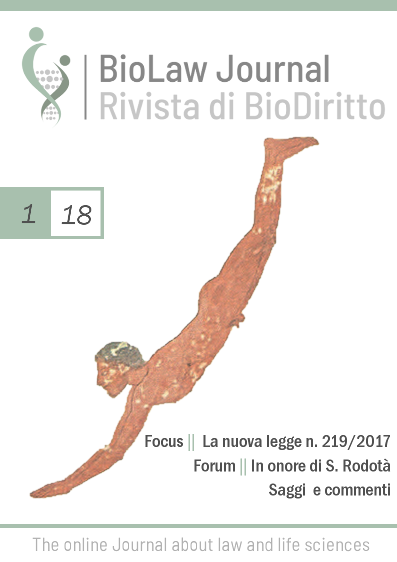Il Protocollo di Nagoya e l’attuazione del principio di Access and Benefit Sharing con particolare riferimento all’user compliance pillar
DOI:
https://doi.org/10.15168/2284-4503-301Parole chiave:
Access and Benefit Sharing, Nagoya Protocol, Genetic Resources, ABS RegulationAbstract
The principle of Access and Benefit Sharing (ABS) in the context of natural resources (and in particular of genetic resources) sets forth the duty for the States and the firms that wish to have access to these resources to sign an agreement with the provider (Mutually Agreed Terms - MAT) on the basis of a Previous Informed Consent - PIC. This agreement must envisage the benefits to be shared – that may be may be monetary or non-monetary – in favour of both the provider and the local or indigenous populations whose traditional knowledge is associated with genetic resources. This paper focuses on some legal issues of the Nagoya Protocol on Access and Benefit Sharing with particular reference to the duties of the users of genetic resources (‘user compliance pillar’). To date, in fact, the legal analysis mainly focuses on the duties of the providers of genetic resources (‘provider pillar’), since it is their primary interest to adopt ABS legislation. However, it is clear that an effective ABS regime must also be based on an adequate implementation mechanism by the users’ side. In this regard, the European Union (EU) has adopted Regulation No. 511/2014 (the ABS Regulation), that establishes clear due diligence duties upon Member States with the goal of avoiding and identifying cases of violations of the Protocol. This Regulation confirms the EU ambition to guarantee high standards of environmental protection.##submission.downloads##
Pubblicato
2018-03-01
Come citare
1.
Pavone IR. Il Protocollo di Nagoya e l’attuazione del principio di Access and Benefit Sharing con particolare riferimento all’user compliance pillar. BioLaw [Internet]. 1 marzo 2018 [citato 18 febbraio 2026];(1):251-73. Disponibile su: https://teseo.unitn.it/biolaw/article/view/1284
Fascicolo
Sezione
Saggi





